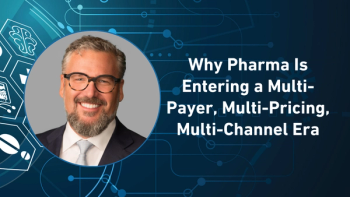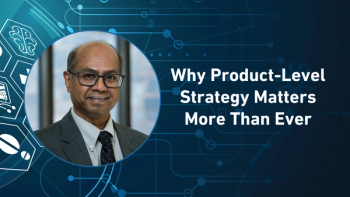
Access Insights 2024: The Value of Retail Consumerism
Albert Thigpen, co-founder, Talentwise Consulting, shares how today’s consumer is empowered to make their own decisions as it relates to consumer choices in general, while outlining how the concept can be applicable to the healthcare and pharma industry.
In a video interview with Pharma Commerce, Albert Thigpen, co-founder, Talentwise Consulting, discussed how the panel on “Playing the Chess Endgame–Healthcare Policies Targeting Drug Commercialization” underscored the complexities of implementing the Inflation Reduction Act (IRA), predicting significant challenges for stakeholders like retail pharmacies, payers, and pharmacy benefit managers. They highlighted concerns about the unintended consequences of negotiated maximum fair prices (MFPs), particularly on the generics industry and oncology drug distribution, which could complicate decisions for companies and affect in-office dispensing practices. Overall, the panelists noted that the IRA's intricate framework might lead to unforeseen difficulties in the healthcare landscape.
Thigpen also emphasized the importance of taking a long-term and measured perspective for manufacturers when it comes to strategic approaches to pricing and commercialization in light of future US. healthcare policies. He noted that, similar to the evolving landscape of Medicare Part D over the past 20 years, the Inflation Reduction Act (IRA) will also undergo significant changes. Manufacturers should prepare for initial challenges and be ready to reassess their strategies annually, adapting to new rules and market dynamics as they emerge. This approach may involve delaying product launches or adjusting commercialization tactics based on negotiated MFPs and market conditions, akin to the strategies seen with AbbVie and Humira. Beyond that, Thigpen dove into key trends impacting the pharmacy benefit management and specialty pharmacy spaces, while providing a crash course on retail consumerism.
A transcript of Thigpen’s conversation with PC can be found below.
PC: What is retail consumerism, and why is it so valuable?
Thigpen: I think about retail consumerism as it pertains to healthcare and pharmacy in general. The consumer today is incredibly empowered to make their own decisions as it relates to consumer choices in general. Let's go through a few of them.
The first one is the music industry. I'm old enough to know that I remember vinyl records, eight-track tapes, and being able to go to a record store. Now, seeing that entire industry evolve into digitized music and streaming services like Spotify or Apple Music, I get to pick and choose my music. I can pay for it on a subscription basis. I have complete control over that. The entire vinyl digital music marketplace has gone by the wayside in favor of a digital consumerism model. The travel industry—I don't care if you're talking airlines or hotels, it is in the hands of the consumer.
The consumer can choose what hotels they want to use. I can choose what airlines I want to use. I can choose multiple portals that allow me to find the cheapest price across the board, like an Expedia or a Kayak, or anything under the sun. I can negotiate with them, find deeper prices across the board, but the need to go and coordinate a vacation through a travel agent is far by the wayside. So that is retail consumerism in the travel industry in general. It’s the same way with the auto industry—I don't have to go to even see a retail agent anymore. Everything's on my phone. I can just pick and choose my car, what I want. Pick my car when I land, figure out how to return it, change it. That's retail consumerism at its best.
Healthcare, unfortunately, Nico, has been the last to convert on retail consumerism, and it's for a lot of different reasons. What I would like to see is a world where the retail consumer and healthcare had their ability and functionality to do what they do in those other industries. I can pick and see my doctor when I want to see my doctor. I can pick the generic when I want the generic drug. I can take if I want to deliver from Amazon pharmacy or Walgreens or CVS or my mail order. I can pick this specialty pharmacy. I can pick this drug or convert this drug. I can pick this lab test when I want it. I can pick this urgent care when I want it.
Having that type of flexibility is how I think about retail consumerism. I think some of the evolution is just like turning the Titanic in healthcare. It's just really slow, methodical changes that are getting there, but companies in the cash marketplace are the ones that are driving a lot of the consumerism by being able to take control their benefit, make the right economical choices that's best for them, choose what pharmacies they want to go to, what coupons are applied or which ones aren't applied. Empowering the consumer to make the choices is basically the under-arching thesis.
Newsletter
Stay ahead in the life sciences industry with Pharmaceutical Commerce, the latest news, trends, and strategies in drug distribution, commercialization, and market access.




